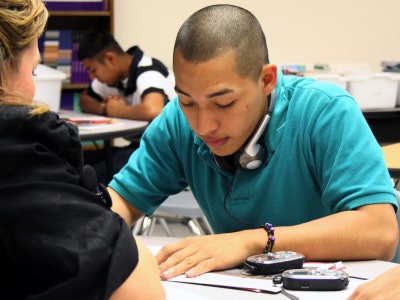
Malfaro, who spoke at the Hispanic Association of Colleges and Universities’ 29th Annual Conference at the Fontainebleau Hotel, said the United States is in a “crucial period of public education reform” and struggles to address the needs Hispanic learners ― who are poorer than their White counterparts and often fall victim to a system based heavily on standardized testing.
“This isn’t just a Texas thing or a California thing,” Malfaro said. “We know now that about a quarter of our students nationwide are Latino and we have over five million English language learners.”
Hispanic-serving institutions (HSIs) are 12.1 percent of nonprofit colleges and universities, yet enroll 20 percent of all students and 58.9 percent of all Hispanic students, according to a Hispanic Association of Colleges and Universities (HACU) report. The Department of Education also provides HSIs ― or schools where 25 percent of full-time students are Hispanic ― with academic grants.
Throughout HACU’s weekend-long conference from Oct. 10 to 12, educators, both K-12 and higher level, talked about research and effective programs that empowered Hispanic students to take ownership of their education and in the process encouraged schoolwide and community collaboration.
In one session, Timothy Hall, president of Mercy College in Dobbs Ferry, New York, pointed to a case in 2006 where 60 percent of students at Austin Peay State University in Clarksville, Tennessee, lacked college-level math and reading skills.
Hall, who was the president at the time, said Austin Peay restructured how they taught underperforming students after the Tennessee Board of Regents, one of two governing higher-level boards in the state, started penalizing universities for offering remedial coursework.




















